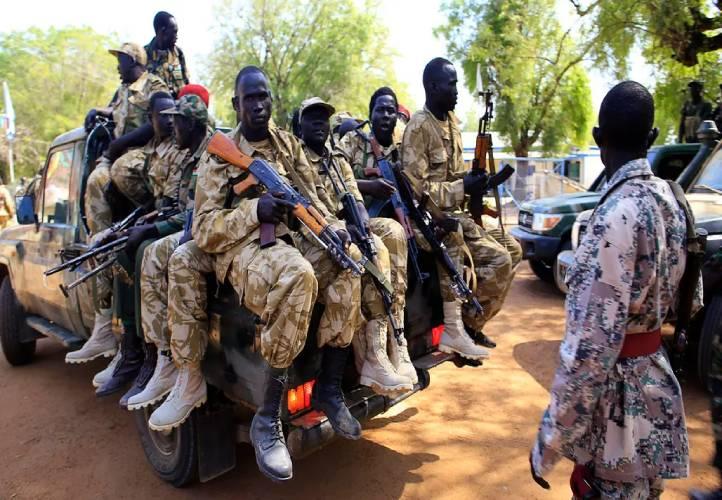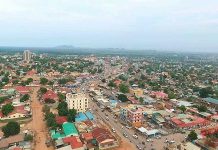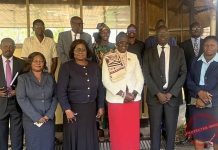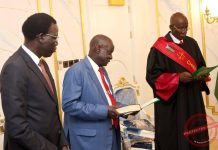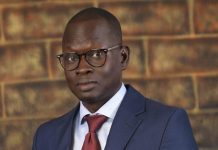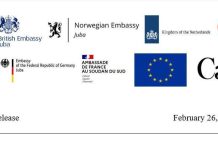Africa-Press – South-Sudan. On January 26, 2016, over two years before the UN put an arms embargo on South Sudan, Amnesty International made a passionate appeal to the same body, asking its Security Council to ‘act immediately on the recommendations of its Panel of Experts and enforce a comprehensive arms embargo to halt the flow of weapons into South Sudan.’
Following the outbreak of the conflict in December 2013, Amnesty International had been lobbying for an arms embargo to help bring an end to alleged serious violations of international human rights and humanitarian law.
The fighting had resulted in tens of thousands of civilian deaths, with hundreds of thousands displaced.
“Last year’s (2015) peace agreement has proven insufficient to end atrocities and usher in accountability in South Sudan’s internal armed conflict.
“It should be a no-brainer for the international community to suspend the flow of arms where those arms are being used repeatedly to commit war crimes and to perpetuate grave and systematic human rights violations and abuses,” said Muthoni Wanyeki, Amnesty International’s Regional Director for East Africa, the Horn and the Great Lakes.
Come July 13, 2018, the UN Security Council slapped South Sudan with Arms Embargo,. The decision technically bared all member states from selling any arm, military equipment, ammo, or advancing any technical technical assistance, training, financial or other, to south Sudan.
“UNSC called upon all member states, in particular those neighbouring South Sudan, “to inspect, in accordance with their national authorities and legislation and consistent with international law, in particular the law of the sea and relevant international civil aviation agreements, all cargo to South Sudan, in their territory, including seaports and airports, if the State concerned has information that provides reasonable grounds to believe the cargo contains items the supply, sale, or transfer of which is prohibited by that resolution to ensure strict implementation of these provisions.”
On May 28, 2021, the UNSC once again extended the embargo to May 31, 2022, which is just slightly over a week to go.
The past few weeks have seen key political figures in Africa calling for the lifting of the arms embargo on South Sudan, as well as the government’s initiatives that it hopes could change the imminent decision in the favor of South Sudan.
On May 8, the President of the Democratic Republic of Congo (DRC), Felix Tshisekedi, committed to spearheading the African Union’s (AU) efforts for lifting sanctions and arms embargo imposed on South Sudan.
Speaking at a joint press conference with his South Sudanese counterpart, Salva Kiir, Tshisekedi said policies of the AU do not allow and encourage sanctions on its member states.
The DRC leader pledged to engage the international community in lifting South Sudan sanctions, saying it delays the implementation of the peace deal.
Four days later, Kenya’s Special Envoy to South Sudan declared his support for the lifting of the arms embargo. He threw his weight behind thus adding impetus to the position of his host President Salva Kiir who blamed the arms embargo on the delay in the graduation of unified forces in the various training centres.
On May 13, 2021, South Sudan reached out to Nigeria to lobby for their support in pushing the Security Council to lift the arms embargo
South Sudan Special Envoy to Nigeria Ambassador Albino Ayuel had meetings with President Mohamadu Buhari and later former President Olusegun Obasanjo.
“We have the arms embargo. Soldiers need to graduate and there are no arms. Nigeria has been friendly to our people, and this is the time to look for an old friend,” he told The City Review.
Expected outcomes
But what exactly does the Security Council expect from South Sudan?
The Security Council has expressed its readiness to review the embargo measures — including through their modification, suspension or progressive lifting — in light of progress achieved on five key benchmarks.
These included the completion by the Revitalised Transitional Government of National Unity of stages 1, 2 and 3 of the country’s strategic defence and security review; the formation of a unified command structure and redeployment of the Necessary Unified Forces; progress on disarmament, demobilisation and reintegration; progress on properly managing existing arms and ammunition stockpiles; and the implementation of the Joint Action Plan for the Armed Forces on addressing conflict-related sexual violence.
Council members requested the South Sudan authorities to report on progress achieved on those benchmarks, as well as additional reforms, to the Committee established under resolution 2206 (2015) overseeing the country’s sanctions by no later than April 15, 2022.
They also requested the Secretary-General, in close consultation with the United Nations Mission in the Republic of South Sudan (UNMISS) and the panel of experts assisting the sanctions committee, to conduct an assessment of progress achieved on the key benchmarks by the same date.
With days to May 28, when the Council is probably expected to pronounce itself on whether or not the arms embargo will be extended, Amnesty International has come out guns blazing, asking the UN to renew the arms embargo ‘amid persistent impunity and ongoing sexual violence.
For More News And Analysis About South-Sudan Follow Africa-Press

